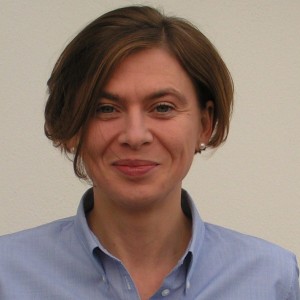55
Sigrid Kusch, University of Southampton, UK, and Giovanni Beggio, University of Padua, Italy
Urban renewable energy facilities owned by the community – what are they about, why are they important, and what are the challenges?
From the perspective of environmental engineering, renewable energy production is mainly about optimising process technology, increasing efficiency degrees, overcoming technical obstacles, and finding solutions that are economically viable. However, when it comes to the implementation of such projects, focusing on technical and economic feasibility is not enough. Aside from very simple standard solutions, each successful project means that interdisciplinary and transdisciplinary challenges were addressed in appropriate ways. When looking at sustainability not only with regard to environmental and economic criteria, but also including further social dimension, community-based projects have particularly high attractiveness. Achieving active participation of the citizen is a vital element in sustainable development.
In bringing the topic of cooperatively owned energy production facilities onto the agenda of sustainable urbanisation, this article aims at starting a dialogue between engineering and social sciences. Community-based projects, especially those with strong technical aspects, need favourable frameworks and suitable policy responses to avoid the risk of falling between disciplines and policies. Private companies and public entities still heavily dominate the energy sector. It is a key challenge to promote and establish community-based energy production as an alternative that is viable and attractive to many citizens.
Overcoming the barrier between awareness and pro-environmental behaviour
Cooperatively owned facilities hold a clear potential to overcome the barriers between environmental awareness and actual pro-environmental behaviour. They introduce an element of identification and create motivating and rewarding community processes. Cooperatives operate as autonomous associations of people. Various organisational forms and financing models exist but, generally, they all adopt the principles and values elaborated by the International Co-operative Alliance: voluntary and open membership; democratic member control; economic participation by members; autonomy and independence; education, training and information; cooperation among cooperatives; and concern for the community (Viardot, 2013).
Cooperatives for Renewable Energy
Renewable energy source cooperatives have reached a considerable number worldwide, which is even more remarkable when considering the often high financial requirements of such facilities. Several hundreds of cooperatively owned renewable energy facilities across Europe are listed alone in the database of REScoop.eu, an initiative launched by the Federation of Groups and Cooperatives of Citizens for Renewable Energy in Europe. Renewable energy source cooperatives propose an innovative organisation and business model that mainly focuses on active participation of the local user citizenships in the decision-making process of new renewable energy production projects, from the siting to the implementation and operation stage. Despite the fact that such initiatives exist in considerable numbers, there is a clear potential for more widespread implementation. Uptake can be fostered by making available shining examples, by providing assistance, and through exchange of knowledge and field expertise.
Urban Community Power
In the area of urban communities and renewable energy, what mobilises urban citizen engagement? Can it be bioenergy? Yes, it can, as shown in the example of a cooperatively owned biogas plant at a zoo (Kusch, 2012). Researching the database of REScoop.eu (2015) indicates that community-based heating based on wood pellets is also successful as an urban application. However, researching the REScoop.eu database in more detail reveals that while there are many examples in rural settings, community-based bioenergy projects in urban environments are rather rare. The vast majority of cooperatively owned energy projects in urban environments are based on solar techniques, mainly photovoltaics.
David and Goliath and the City
Community-based renewable energy projects provide evidence that central elements of the David and Goliath narrative can regularly be replicated, inspiring other communities to also become aware of their powers, to break dependency from large energy suppliers, and, instead, to create and put into practice their own systems. It is a complex challenge to frame what elements are crucial in building up successful local community initiatives (Boon and Dieperink, 2014; van der Schoor and Scholtens, 2015; Walker et al., 2010; Yildiz et al., 2015). Understanding ‘community’ is essential for understanding community energy (Wirth, 2014). Research in this field often addresses rural environments (e.g. bioenergy villages in Germany), while urban contexts have been less in focus. In contrast to rural settings, where such projects often involve a majority of the population, which fosters specific community dynamics, urban community projects often are minority projects, based on smaller sub-communities. Urban citizens also often have other lifestyles, including, for example, mobility patterns, which can result in faster changes of members of such communities. A detailed systematic analysis would allow a better understanding of the specific challenges and opportunities of cooperatively owned energy facilities in cities. Highly promising is the elaboration of protocols for community ownership of renewable energy systems, as has recently been made available in the UK (SCO-RES, 2015). In this context, it can be expected that a suitable institutionalisation of initiatives would foster self-organising processes in the way that implementation and coordination of projects were facilitated.
References
Boon, F.P.; Dieperink, C. (2014). Local civil society based renewable energy organisations in the Netherlands: Exploring the factors that stimulate their emergence and development. Energy Policy 69, 297-307.
Kusch, S. (2012). Organic wastes as energy source in zoos. Proceedings “WasteEng 2012 – 4th inter-national conference on Engineering for Waste and Biomass Valorisation”, 10-13 Sept 2012 in Porto, Portugal, pp. 1399-1404.
REScoop.eu (2015). Website of the federation of groups and cooperatives of citizens for renewable energy in Europe, http://rescoop.eu/, accessed May 2015.
van der Schoor, T; Scholtens, B. (2015). Power to the people: Local community initiatives and the transition to sustainable energy. Renewable and Sustainable Energy Reviews 43, 666-675.
SCO-RES (2015). Website on shared community ownership of renewable energy systems, hosted by Community Energy England and Local Energy Scotland, http://www.sco-res.uk/, accessed May 2015.
Viardot, E. (2013). The role of cooperatives in overcoming the barriers to adoption of renewable energy. Energy Policy 63, 756-764.
Walker, G.; Devine-Wright, P.; Hunter, S.; High, H.; Evans, B. (2010). Trust and community: Exploring the meanings, contexts and dynamics of community renewable energy. Energy Policy 38, 2655-2663.
Wirth, S. (2014). Communities matter: Institutional preconditions for community renewable energy. Energy Policy 70, 236-246.
Yildiz, Ö; Rommel, J.; Debor, S.; Holstenkamp, L.; Mey, F; Müller, J.R.; Radtke, J.; Rognlih, J. (2015). Renewable energy cooperatives as gatekeepers or facilitators? Recent developments in Germany and a multidisciplinary research agenda. Energy Research & Social Science 6, 59-73.
Author Biographies
Dr Sigrid Kusch is an environmental engineer with a focus on waste and resource management, and a specific interest in valorisation of biogenic resources. Her experience stems not only from working with various academic institutions, but also from non-academic projects. As an independent expert, she is mainly based in Ulm, Germany. She is a visiting fellow of the University of Southampton, UK, and a member of the Bioenergy and Organic Resources Research Group. Furthermore, she is a contract professor for Sustainable and Renewable Resources at the University of Padua, Italy.
Sigrid Kusch is an environmental engineer with a focus on waste and resource management, and a specific interest in valorisation of biogenic resources. Her experience stems not only from working with various academic institutions, but also from non-academic projects. As an independent expert, she is mainly based in Ulm, Germany. She is a visiting fellow of the University of Southampton, UK, and a member of the Bioenergy and Organic Resources Research Group. Furthermore, she is a contract professor for Sustainable and Renewable Resources at the University of Padua, Italy.
Contact email: mail@sigrid-kusch.eu
 Giovanni Beggio earned his Bachelor in Environmental Engineering in 2013 at the University of Padua, Italy, with a thesis on the state of the art of anaerobic digesters, and is currently finishing his Master of Science on the same topic at the University of Padua. Ecotoxicology and ecological risk assessment are among his specialisations. Furthermore, he is passionate about research on sustainability and energy transition, with a focus on bioenergy projects and their concrete implementation in various environments.
Giovanni Beggio earned his Bachelor in Environmental Engineering in 2013 at the University of Padua, Italy, with a thesis on the state of the art of anaerobic digesters, and is currently finishing his Master of Science on the same topic at the University of Padua. Ecotoxicology and ecological risk assessment are among his specialisations. Furthermore, he is passionate about research on sustainability and energy transition, with a focus on bioenergy projects and their concrete implementation in various environments.
Contact email: giovanni.beggio.nf@gmail.com
